Luiz Inácio Lula da Silva
Nacimiento : 1945-10-27, Caetés, Pernambuco, Brazil
Historia
Luiz Inácio Lula da Silva (born 27 October 1945), known simply as Lula, is a Brazilian politician who served as President of Brazil from 1 January 2003 to 1 January 2011. He is a founding member of the Workers' Party (PT – Partido dos Trabalhadores) and ran for president three times unsuccessfully, first in the 1989 election, then again in 1994 and 1998. Lula achieved victory in the 2002 election, and was inaugurated as president on 1 January 2003. In the 2006 election he was elected for a second term as president, which ended on 31 December 2010. Succeeded by his former Chief of Staff, Dilma Rousseff, he left an enduring mark on Brazilian politics in the form of Lulism.
Description above from the Wikipedia article Luis Inácio Lula da Silva, licensed under CC-BY-SA, full list of contributors on Wikipedia.

Himself
A mysterious and famous Prophet presents his daily program on TV. Meanwhile, behind the scenes, a mystical and enigmatic figure pursues him.

Himself
The 580 days that president-elect Lula, from Workers Party, spent in prison are the subject of the documentary "Visita, Presidente". The feature brings together unpublished stories of figures who were beside him in prison.

As head of the Organization for the Prohibition of Chemical Weapons, Brazilian diplomat José Bustani became an obstacle in America’s march to war with Iraq. Ousted from his position, he now revisits the chilling events that marked a turning point in global power structures.

Luiz Inácio Lula da Silva
Brazil has a long tradition of coup d'états. These coups would have not been viable without the support of the big media, particularly TV Globo. Two Brazilian journalists in the UK reveal the manipulative tactics of these organisations.

The movie is a collage and comentary of varied third party footage on news relating to each and every one of the eight Presidents of Brazil who took office since the end of the military government, from José Sarney to Jair Bolsonaro.

The life and trajectory of José Rodrigues Mao Jr., history professor, unionist, singer and founder of the band Garotos Podres, an iconic Brazilian punk band from the 80s.
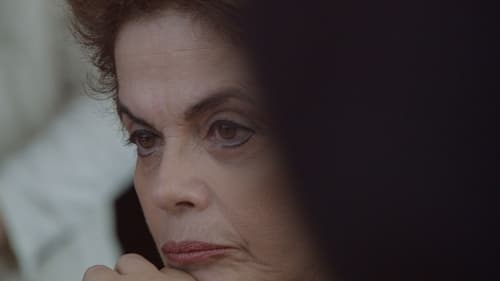
Self
The film narrates, from an intimate point of view, the daily life of President Dilma Rousseff in her official residence, the Palácio do Alvorada, while awaiting the verdict of the impeachment process. Portraying the hallways of the palace, designed by Oscar Niemeyer, we see the coming and going of political meetings, the daily routine of the kitchen, the exchange of guards, whispers and phone calls. We feel the growing tension of officials, advisers and former ministers.

Himself
After the coup of 1964, the media conglomerate Diários Associados organized a campaign called "Gold for Brazil," exhorting the people to donate wealth to the military government. The symbol of the campaign was the wedding ring, sealing the union between the people and the State. The film picks up the trail of the millions collected, but never channeled back into society.

Self
The filmmaker has shot for 16 years Lula da Silva's trajectory on politics which took him to the Presidency of Brazil. Through unique indie filmmaking, we observe the path that takes him to get elected, reelected, impeachment of his successor and colleague Dilma Rousseff, and Lula's incarceration process that paved the way to Jair Bolsonaro's presidential triumph in 2018.

Self - President of Brazil (2003–2010)
Debate sobre la disputa por la hegemonía del continente entre las fuerzas conservadoras y los movimientos populares.

Archive
Composed of videos published on YouTube by Petrobras contractors, the film explores an important chapter in the country through fragments of working life inside and outside the factory. With their own hands, the working class registers - over a decade (2008-2018) - the joys and disappointments of their journey.

"El odio" describes the discrediting campaign against Lula da Silva and the Workers' Party in Brazil, demonstrating how this process led Jair Bolsonaro to the presidency. Conducted by Argentine documentary filmmaker Andrés Sal.lari, also details the participation of Judge Sergio Moro, the media and Washington in the entire operation.
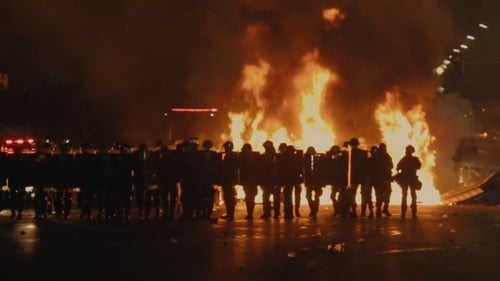
Self
Aunque una vez Brasil fue un país lastrado por una dictadura militar, el 2002 se produjo uno de los acontecimientos más importantes de su historia social: la elección de Lula da Silva como presidente, un activista que había luchado largo y tendido para defender los derechos del pueblo carioca. Bajo su mandato, más de 20 millones de personas lograron superar el umbral de pobreza. En 2010, Lula cedió el testigo del poder a un prodigio llamado Dilma Rousseff. Por desgracia, la corrupción institucional alcanzó al pueblo llano que, influenciado por un juez partisano, acabó poniendo la lupa sobre Lula y Dilma, así como sobre cualquier persona que no estuviese dispuesto a bailar a su son. Este documental explica el proceso que llevaría a ambos políticos a juzgados por distintos crímenes judiciales.

Himself
During 2016, a film crew embeds inside the Brazilian Congress while lawmakers plot to overthrow the country's elected president, Dilma Rousseff.

Considered for a few years the “country of the future”, Brazil has seen since 2013 a deep disenchantment between the middle and popular classes that culminated with the rise of Jair Bolsonaro to the Presidency in 2018. Enchanted portrays this recent Brazilian history from a homonymous neighborhood of the Rio suburb transfigured by the 2016 Olympics. From Rio to Paris, a political and poetic testimony of Brazil through the eyes of the first generation of the popular class to study abroad.

Self (archive)
Documentary on the history of syndicalism in Brazil.

Himself
This documentary shows a country that has lifted 36 million people out of extreme poverty in 12 years.
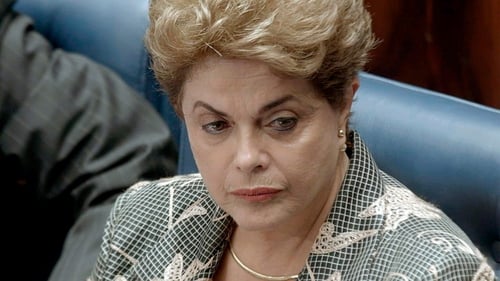
Self
Anatomía del proceso de destitución contra Dilma Rousseff, diseccionado paso a paso para comprender las notorias irregularidades de lo que muchos consideran abiertamente como un golpe de estado, destinado a virar radicalmente la política económica de Brasil.

Himself
Brazil enters a great political turmoil after president Dilma Rousseff has been ousted through an impeachment process.

Himself
El filme investiga un periodo fascinante de la historia brasileña, la redemocratización de los años ochenta, a través de las demandas populares para las elecciones libres, el crecimiento de los grupos brasileños de rock y el movimiento revolucionario conocido como la democracia corintia. Es el momento específico en que el futbol popular y los artistas de rock se vuelven el eco del canto del pueblo por la democracia.
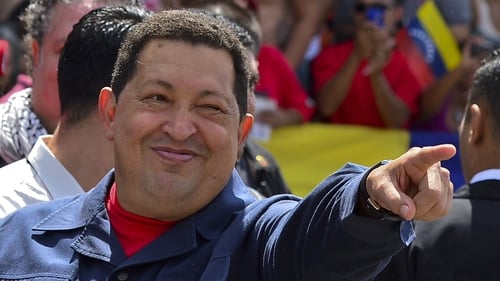
Oliver Stone presents a tribute to a friend one year after his death, the friend in question was the Venezuelan leader, Hugo Chávez. The documentary covers the time Stone and Chávez spent while making "South of the Border", when they developed a close relationship; and the testimonies from South America leaders and people close to Chávez to talk about their views on the man and the politician and share some personal stories they had with him.

Self
Darcy Ribeiro was a renowned anthropologist, politician and writer. In this documentary, Maria Maia seeks to expose a bit of his personality with testimonials from friends, collaborators and speeches by Darcy himself.

Himself
Todo Poderoso: O Filme - 100 anos de Timão tells the saga of a team that was born from the hands of five workers to become a real social phenomenon. Rescues images never before seen footage as the first of Corinthians in 1929, plus historic interviews of the first team's idols, as Neco, Del Debbio, Baltazar and Luizinho. Brings together for the first time, the major superstars that recall the glories of these 100 years of history through more than 200 goals. It features unreleased song of Bid, Rappin Hood and Negra Li composed especially for the film's official centenary of Timão.

Self - President of Brazil
Documentary about the independence and history of Latin America.
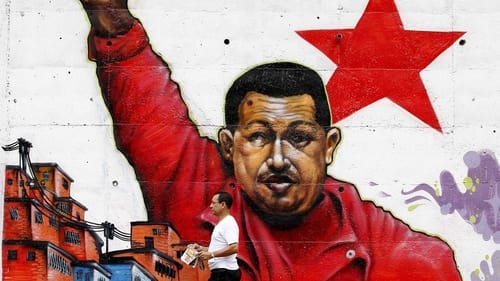
Self
A road trip across five countries to explore the social and political movements as well as the mainstream media's misperception of South America while interviewing seven of its elected presidents.

Himself
Intermissions follows Lula during the hectic election campaign for the presidency in 2002. Lula gave filmmaker João Moreira Salles and his crew complete access, and the result is an intimate documentary of what went on behind the scenes. Sometimes, Lula is afraid that he will lose his freedom as president. Combined with Lula's candor, the film's observational style provides some very special insight into one of Brazil's most popular leaders.


Self
Beyond Citizen Kane (1993) is a British documentary film directed by Simon Hartog, produced by John Ellis, and broadcast on Channel 4. It details the dominant position of the Rede Globo media group in the Brazilian society, discussing the group's influence, power, and political connections.[2] Globo's president and founder Roberto Marinho came in for particular criticism, being compared with fictional newspaper tycoon Charles Foster Kane, created by Orson Welles for the 1941 film Citizen Kane. According to the documentary, Marinho's media group engages in the same Kane wholesale manipulation of news to influence the public opinion.


Self (uncredited)
ABC of a Strike captures the 1979 metal workers strikes outside of São Paulo. The footage sat untouched until after the death of highly-regarded director Leon Hirszman in 1987, by which time the material had a new relevance. The gripping film captures the negotiations between the labor unions and the factory bosses and shows the birth of the region’s Worker’s Party, as well as the emergence of its charismatic leader, Luiz Inácio Lula da Silva. Rising from extreme poverty, Lula gained national prominence as a union activist during the late 70s and early 80s. After being jailed during his time as a union leader, he eventually becomes Brazil’s president from 2003 to 2010.

Passages from the life of former Alagoan senator Teotônio Vilela, with emphasis on the process of his formation as a public figure, from his childhood as a mill boy to the final stage, with his famous campaign for the democratic restoration of the country. At this point, he was a man on the brink of death, already victimized by the cancer that would kill him.

Himself (archive footage) (uncredited)
A TV reporter tries to find out who is killing prostitutes in a São Paulo neighbourhood.

Self - Presidente do Sindicato dos Metalúrgicos
Documentary about the strikes that took place in São Bernardo do Campo, in the State of São Paulo, Brazil, circa 1979/1980. That moment was of utmost importance, since it revealed a Union leader, Luís Inácio "Lula" da Silva, who would later become President of Brazil. It was also the moment when PT, the Workers' Party, became a relevant political force in Brazil.

Self (uncredited)
Short documentary on workers' movement in Brazil in the 1970s, such as the Movement Against Famine, and the policial repression against demonstrators and activists.

Self (uncredited)
Documentary about the resumption of the workers 'movement during and after 17 years of dictatorship, led by the metallurgists of ABC Paulista (Luiz Inácio Lula da Silva) that culminated in the creation of the Workers' Party - PT

Self (uncredited)
A documentary about the 1979 workers strike.

Self (uncredited)

Self (uncredited)

Self (uncredited)
In the late seventies, a group of Brazilian documentary filmmakers traveled to the ABC region in the suburbs of São Paulo with the purpose of recording a wave of worker strikes taking place in response to the negligence of the increasingly powerful and abusive automotive industry. Documenting striking women metal workers, Olga Futemma and Renato Tapajós’ Trabalhadoras Metalúrgicas is a particularly vigorous work among the films produced during this moment in São Paulo worker history. Scenes filmed during the first Congress of Metallurgical Women of São Bernardo and Diadema in 1978 are intercut with images documenting the appalling working conditions against which the women featured in the congress were striking.

Self - Presidente do Sindicato

Ele Mesmo

(Arquivo de Imagens)
















